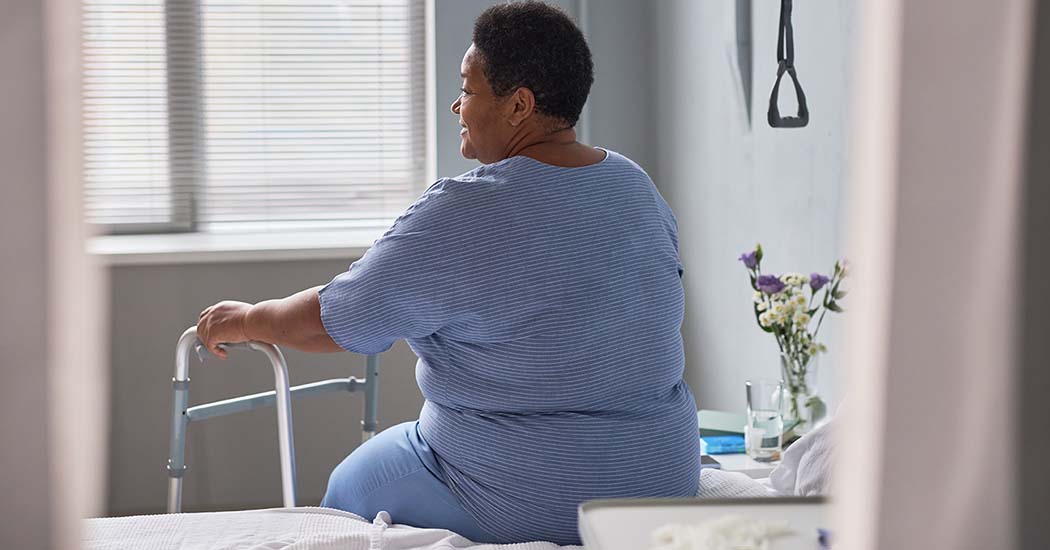Practical Tips for Improving Minority Health
April 27, 2023

Across South Carolina, racial and ethnic minorities have the highest rates of poor health outcomes, disease and chronic conditions.
Studies show they have higher rates of diabetes, obesity, asthma and heart disease. Black women are more likely to have health problems during pregnancy and childbirth. Their children have higher rates of infant death, according to the South Carolina Department of Health and Environmental Control.
Organizations across the state, including BlueCross BlueShield of South Carolina, are working to address these inequities.
There are ways for minorities to take control of their health care.
“Just because your mother had diabetes or your uncle had high blood pressure, it doesn’t mean your conditions can’t change. Things can improve. Take charge of your health. You can make changes in your life to improve your health outcomes,” says Cynthia Holmes, program manager for disease management and population health at BlueCross.
Managing access to care
Minorities are more likely to be uninsured and have limited access to health care, studies show. High costs for care can deter people with lower incomes.
Groups across the state offer clinics for people who don’t have health insurance or those who need help finding care for a lower cost. For example, the BlueCross BlueShield of South Carolina Foundation funded a grant for Fetter Health Care Network to start school-based dental services for children in Charleston and Colleton counties.
Some hospitals, clinics and churches host health fairs that provide low-cost screenings. Churches often partner with health care facilities and offer screenings at no cost. Brookland Baptist in West Columbia has a health fair every year in March, for example. BlueCross is represented each year to share information.
Finding health fairs and other resources can be tricky. Churches and libraries are great places to start. Some state departments also have programs to increase access for those in need.
Subsidies are available through www.HealthCare.gov to help people sign up for a health plan during open enrollment. Open enrollment starts in November each year.
People who don’t know if they can afford a health plan can talk to a BlueCross expert about their options by calling 855-244-3694 or visiting one of our retail stores.
Searching for healthy foods
Eating healthy food has a big effect on overall health. But a balanced diet can be expensive. In general, processed foods cost less.
Shop sales at the grocery store for fresh fruits and vegetables, especially those stores that purchase these items locally, Holmes says.
Visit local farmers markets. Local fruits and vegetables cost less. Community groups like churches and small towns host these markets across the state. Find a local market on the South Carolina Department of Agriculture’s website.
Frozen fruits and vegetables can be just as healthy as fresh produce. If you buy canned vegetables, check the sodium content. Check canned fruit for added sugars.
Getting to care
Getting to and from doctor visits can be hard for people who don’t have reliable transportation or access to a vehicle. This can be doubly hard in rural areas of the state.
Don’t skip appointments. If you can’t make an appointment, ask for a virtual visit. Not all health care providers offer this, but many do. You have to ask, Holmes says.
Finding a trusted doctor
A doctor or health care provider you trust can make it easier to ask questions about your care.
Don’t ignore symptoms. If something is bothering you, see your doctor. It can get worse if you ignore it. It can also become harder or too late to treat the condition. Get the screenings your doctor recommends. Routine screenings such as mammograms, Pap smears and colonoscopies help detect diseases early.
Using the emergency room for primary care is more expensive and is not the appropriate option, Holmes says. Find a regular doctor for routine visits. Build your relationship with your primary care doctor for sustainable and healthier outcomes.
Take your medication. Skipping recommended doses can make symptoms worse and lead to other problems.
Know your numbers. If you get a lab test, follow up on the results. Learn more about your results with online records like MyChart. Once you have the results, ask questions.
Don’t always believe what you see online or hear from friends. There are many myths about health conditions. A doctor can verify what you learn through the grapevine.
Ask why a doctor is requesting certain tests or procedures. It may help you avoid unneeded tests or treatment.
If you don’t know how to start a conversation with your care provider, try these questions:
- Do I really need this test or procedure?
- What are the risks and side effects?
- Are there simpler, safer options?
- What happens if I don’t do anything?
- How much does it cost?
- Will my insurance pay for it?
The BlueCross BlueShield of South Carolina Foundation is an independent licensee of the Blue Cross Blue Shield Association.
The South Carolina Department of Environmental Control and the South Carolina Department of Agriculture are independent organizations that provide information you may find helpful.
This page contains links to third-party websites. Those parties are solely responsible for the privacy policies and contents of their websites.
Related Reading
 Addressing Health Inequities in Communities of Color
Addressing Health Inequities in Communities of Color
Diabetes affects hundreds of thousands of people in South Carolina. But it does not affect them at the same rate. The rate of the disease is higher among Black residents than white. It affects more than 16 percent of Black people in the state. It affects 11 percent of white residents.
Read More Focus on Minority Health and Gaps in Care
Focus on Minority Health and Gaps in Care
The COVID-19 pandemic has brought to light the health disparities minorities face. Inequality in care leads to increases in poor health outcomes and higher rates of chronic conditions in underserved communities. BlueCross' Dr. Lena Bretous discusses the gaps in care.
Read More Why You Should Have a Primary Care Provider
Why You Should Have a Primary Care Provider
As many as 25 percent of Americans do not have a primary care provider (PCP). One BlueCross doctor discusses why South Carolinians should have a PCP and what a regular care provider can offer to keep people healthy.
Read More


















